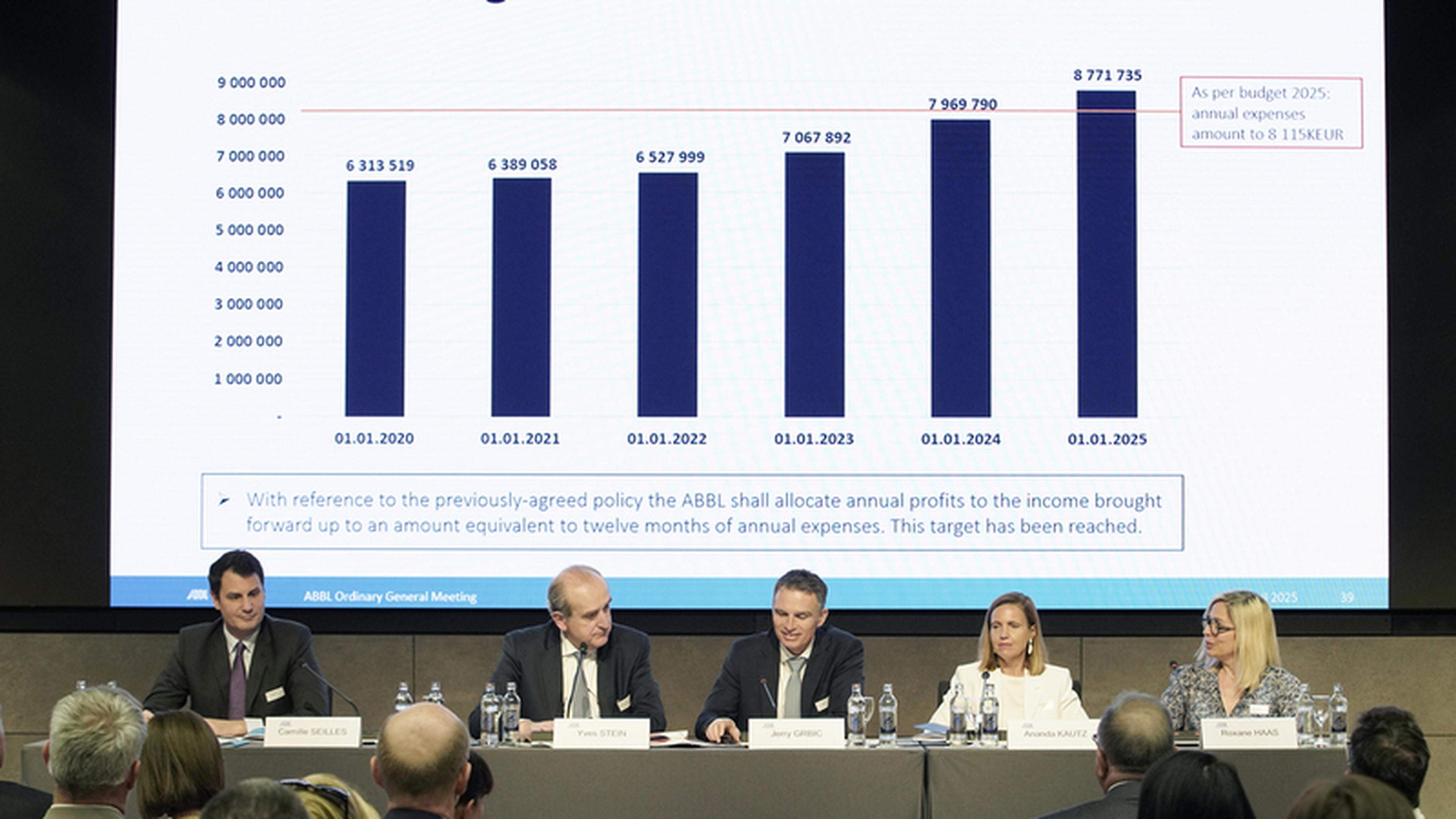Strengthen the financial sector as a pillar of stability – but like easier

The financial sector should remain a pillar of stability, as was recorded on the occasion of the ABL balance sheet press conference. However, the resistance of the financial system must be further strengthened, consumer protection improved and the long -term load -bearing capacity of the business activity of the members.
The recent crises would once again demonstrate the resistance of the banking sector and consolidated it as a load -bearing pillar of stability and sustainable growth, as the Abplage represents.
The main objective of all members is therefore to remain in accordance with both sustainably profitably and sustainably compliance – « and to release enough resources in order to continue to contribute to the dynamics of the economy and to promote collective prosperity, » emphasized Yves Stein, Chairman of the Ab.
Increase of the ECB control interest
As part of their inflation -fighting strategy, the rapid and significant increase in key interest rates by the European Central Bank (ECB) in 2023 had enabled banks to achieve extraordinary profits through their net interest margins. « This position is often misunderstood, » explained Jerry Grbic, CEO of the Ab.
« The traditionally stable margin that can achieve banks on the target and habits of private customers only makes a small part. The majority of the yields come from capital, which the banks place as regulatory reserves or for investment purposes at the ECB. After a decade with low or even negative interest rates, this capital now brings returns. »
This development led to an increase in net interest income by 50.9 percent in 2023 and another plus of 4.4 percent in 2024. The net income from fees and commissions also increased by 9.4 percent, supported by a positive development on the stock markets.
Luxembourg’s banks make full profits
View of the 2024 banking balance sheet
After an extraordinary year 2023, in which the Luxembourg banks were able to strengthen their reserves to cope with current instabilities and possible future shocks, the 2024 financial year was also satisfactory for our members: the net profit was 7,239.1 million euros – an increase of ten percent.
The total assets of the banks rose slightly by 1.89 percent – from 920 billion euros in 2023 to EUR 937.4 billion in 2024.
The number of employees in the banking sector remained almost stable with 26,148, a decline of 137 positions is shown.
The number of banks easily dropped from 118 (2023) to 115 (2024), which corresponds to the global trend towards consolidation in banking.
The Abbl itself continued to grow and took up 25 new members last year, which rose the total number to 266 fully and associated members.
« It is undeniable that the tasks mean considerable costs and investments for our members – and that regulatory over complexity can quickly make a competitive disadvantage from a collective, commendable project, » said Yves Stein and noted: « The awareness of the need for more competitive Europe has increased – especially in view of the growing pressure from non -European markets. »
« The banks want to be part of the solution »
Not fall behind the USA
The Draghi report clearly shows how much the European economy-and in particular the financial sector-has fallen behind actors such as the USA, where regulations are often slimmer and more flexible.
The question that arises is: Will American or European banks be better able to finance the economy of the future? Even though the discount welcomes the political change of course towards more pragmatism, Secretary General Camille Seillès showed hurdles. As an example, he attached the complexity to the opening of a bank account. « This is not only a problem in Luxembourg, but in many European countries – and much more than just a nuisance. »
It is a real obstacle to financial inclusion and corporate development, because this difficulty is closely linked to the current requirements for customer identification and examination (KYC). The ongoing work of the European Banking Supervisory Authority (EBA) in technical standards for duty of care could be relieved here in the future.
Another focus is on the Retail Investment Strategy (RIS). Is there a relieved access to private investors to the financial markets? According to the ABBL, the opposite is the case.
Cyber security in the foreground
Among the many challenges that the banks should face, cyber security and protection against online fraud take an important status. While banks are confronted with more and more cyber attacks, fraud attempts, phishing and ATM manipulations towards citizens and companies would increase significantly, says Ananda Kautz, head of innovation, payment transactions and sustainability in the FT.
According to the EU Agency for Cyber Security (Enisa), 46 percent of all documented attacks were directed against banks between January 2023 and June 2024. The so-called DOS attacks in connection with the Ukraine secretary were particularly striking.
Cyber attacks rise rapidly in Luxembourg
In Luxembourg, the police registered an increase in online fraud cases by 20.8 percent during the same period. To defend these threats, banks are working on two fronts: strengthening the digital resistance and protection of customers.
In December 2024, the ABBL founded a national working group to combat online fraud with the House of Cybersecurity. A national sensitization campaign is scheduled to start in 2025.
How fraudsters get to their mobile number
Position paper with around 40 concrete suggestions
Therefore, the ABL is convinced that a regulatory simplification, tailored to the European competitive agenda, is the key to a powerful and dynamic financial ecosystem – which was summarized in a position paper entitled « Suggestions for more intelligent regulation in Europe », with around 40 concrete proposals.







